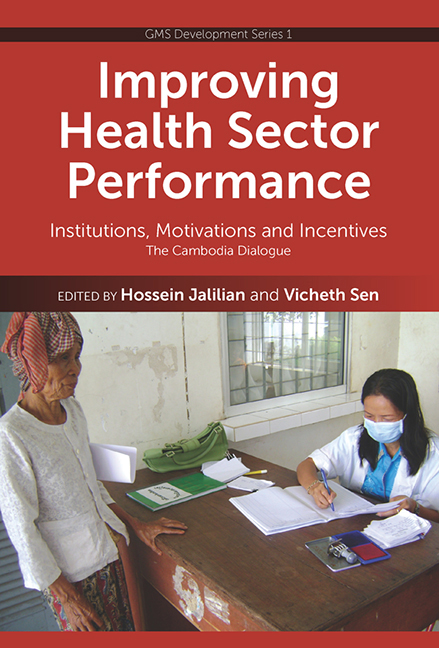 Improving Health Sector Performance
Improving Health Sector Performance Book contents
- Frontmatter
- Contents
- Acknowledgements
- Foreword
- List of Contributors
- Introduction
- Part I Overview
- Part II Organizational Arrangements: Purchasing Health Services
- Part III Optimal Health Workers Contracts
- 7 A Civil Service That Performs: Primary Health Care in Curitiba, Brazil
- 8 Increasing Uptake of Reproductive Health Services Using Innovative Financing Models: Experiences of Marie Stopes International
- 9 Understanding Rural Health Service in Cambodia: Results of a Discrete Choice Experiment
- 10 Contracting Health Workers to Underserved Areas: Indonesian Approaches to a Distributional Challenge
- Part IV Managing Doctors and Nurses
- Part V Health Service Consumer Behaviour
- APPENDIX
- Index
7 - A Civil Service That Performs: Primary Health Care in Curitiba, Brazil
from Part III - Optimal Health Workers Contracts
Published online by Cambridge University Press: 21 October 2015
- Frontmatter
- Contents
- Acknowledgements
- Foreword
- List of Contributors
- Introduction
- Part I Overview
- Part II Organizational Arrangements: Purchasing Health Services
- Part III Optimal Health Workers Contracts
- 7 A Civil Service That Performs: Primary Health Care in Curitiba, Brazil
- 8 Increasing Uptake of Reproductive Health Services Using Innovative Financing Models: Experiences of Marie Stopes International
- 9 Understanding Rural Health Service in Cambodia: Results of a Discrete Choice Experiment
- 10 Contracting Health Workers to Underserved Areas: Indonesian Approaches to a Distributional Challenge
- Part IV Managing Doctors and Nurses
- Part V Health Service Consumer Behaviour
- APPENDIX
- Index
Summary
INTRODUCTION
“Curitiba is a city of 1.9 million people. It is the capital of Paraná, one of Brazil's more developed states, located in the south of the country, and one of Brazil's wealthiest cities. Curitiba is known for its urban innovations and the quality of its life. It has an innovative rapid-transport bus system. It has more green space than any other Brazilian city. Seventy per cent of the city's garbage is recycled. Ninety-nine per cent of Curitibans say that they would not want to live anywhere else”. (McKibben 1995).
Curitiba's public health care system is less well known. but is equally impressive. Over four decades of steady development, the city has emerged as an exemplary practitioner of the Brazilian model of public primary health care. This chapter looks at how Curitiba's management of its human resources has contributed to this achievement.
Curitiba has a well qualified and highly motivated workforce consisting largely of tenured civil servants. But Curitiba is not a typical Brazilian story. Problems of delivering health services in Brazil's subnational governments are widespread, and a poorly performing workforce — in most cases with the same traditional civil service regime — is an important part of the explanation. The case of Curitiba suggests that the interests of workers can be made to align with public objectives, even within such a regime.
This case study goes beyond the most formal or most visible aspects of the labour contract and places the management of human resources within the overall management system. It also looks at the external factors of history, national policies, and funding that influence the management system. But looking in-depth at one case and casting a broad net to understand it do not lead to unambiguous conclusions. The lessons from this case and their applicability to other health systems have an element of speculation.
PRIMARY HEALTH CARE IN CURITIBA
The Unified Health System
Brazil's 1988 constitution mandated a decentralized, universal, and free health service financed from social welfare funds. This reform was largely part the product of the Brazilian health care reform movement (Movimento da Reforma Sanitária). This was a remarkable revolution, in the context of Brazil's return to democracy, in which a professional group formulated a radically alternative policy and then gained key political and bureaucratic posts to implement it (Weyland 1996, Chapter 7).
- Type
- Chapter
- Information
- Improving Health Sector PerformanceInstitutions, Motivations and Incentives - The Cambodia Dialogue, pp. 151 - 183Publisher: ISEAS–Yusof Ishak InstitutePrint publication year: 2011
